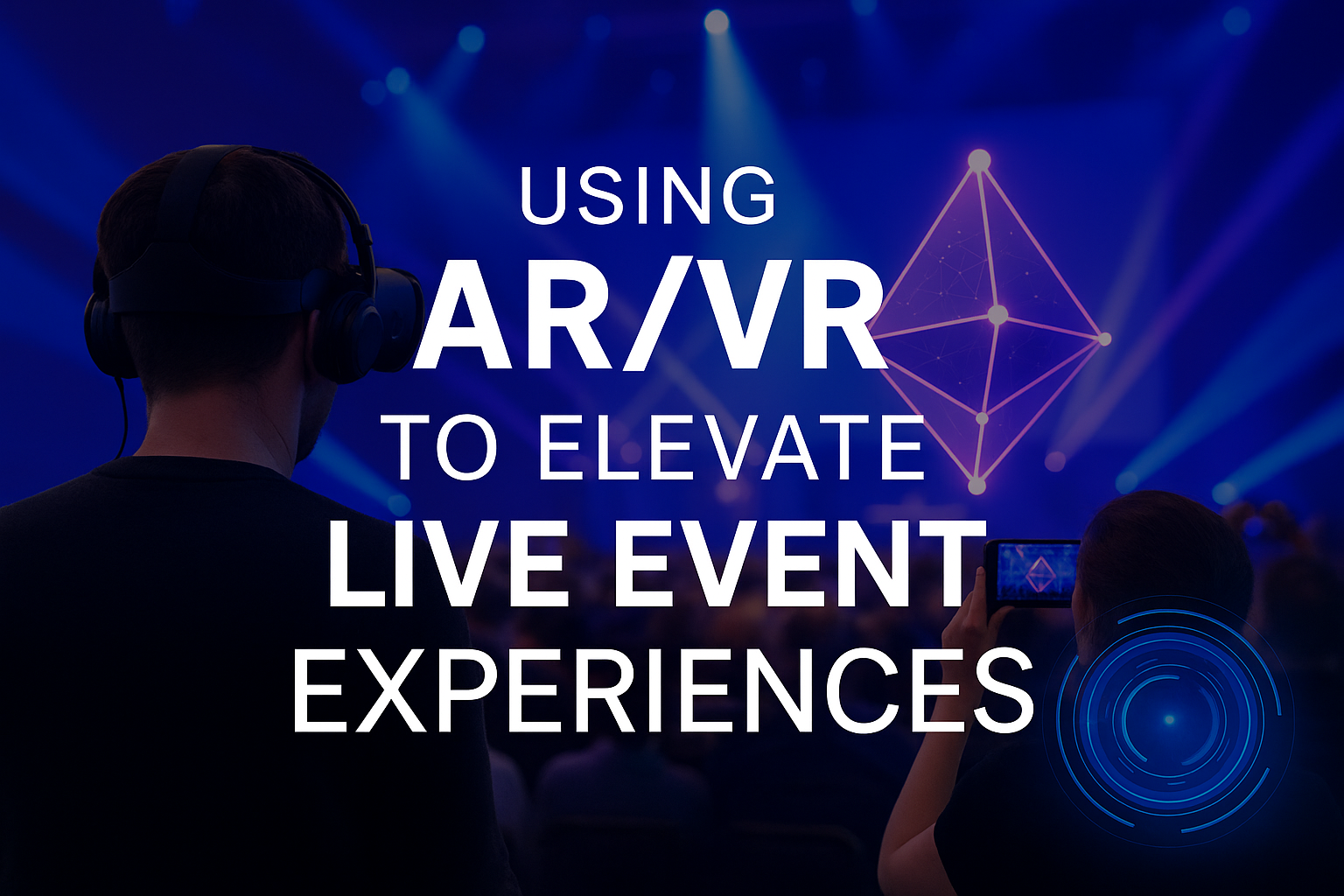
In the high-energy world of live events, staying ahead means creating experiences that are immersive, memorable, and technologically superior. Augmented Reality (AR) and Virtual Reality (VR) have become central to this mission, especially in cities like Dubai renowned for its innovation-forward event landscape. From brand activations to mega exhibitions, AR and VR are revolutionizing how attendees interact, engage, and remember events.
Why AR/VR Matters in the Dubai Event Scene
Dubai is a hub for international expos, conferences, and experiential events. With tech-savvy audiences and high client expectations, AR/VR has emerged as a solution to deliver high-impact experiences that go beyond traditional setups.
AR and VR are no longer futuristic concepts; they are present-day tools redefining event planning, execution, and attendee interaction.
Key Benefits of AR/VR in Live Events
1. Immersive Brand Storytelling
AR/VR enables brands to bring their narrative to life through interactive 3D environments. Whether it’s a product launch or a corporate event, VR simulations can immerse attendees in a virtual brand world.
2. Enhanced Attendee Engagement
Gamified AR activations, interactive wayfinding, and immersive photo booths encourage deeper audience participation, making events more memorable.
3. Virtual Venue Walkthroughs
For hybrid or remote participants, VR walk-throughs replicate the physical venue, allowing for virtual attendance that mimics the live experience.
4. Data Collection and Analytics
AR/VR tools offer advanced analytics such as gaze tracking, interaction hotspots, and dwell time providing organizers with deep insights into attendee behavior.
5. Hybrid Event Amplification
With AR/VR, hybrid events can go beyond live-streaming. Remote guests can participate in VR exhibitions, attend breakout rooms, or explore virtual showrooms.
Real-World Applications in Dubai Events
AR in Trade Show Booths
Many exhibitors at Dubai World Trade Centre are using AR for interactive product demonstrations overlaying specs, animations, or 360° views when attendees scan items.
VR in Real Estate and Automotive Launches
From VR property tours at real estate expos to immersive test-drives at auto shows, VR is enabling try-before-you-buy experiences without needing large physical setups.
Virtual Venue Staging
Event planners use VR to show clients exactly how stage setups, lighting design, and decor will appear saving time and minimizing design miscommunications.
Technologies Powering the Shift
- AR SDKs: Apple ARKit, Vuforia, 8th Wall
- VR Platforms: Oculus Quest, HTC Vive, Unreal Engine, Unity 3D
- Event Apps with AR features: Eventee, Whova, ZapWorks
Partnering with tech-enabled event vendors in Dubai ensures seamless deployment and support of these systems.
Best Practices for Integrating AR/VR into Your Event
- Start with Clear Objectives: Know whether your goal is education, engagement, lead generation, or brand awareness.
- Keep Accessibility in Mind: Offer alternatives for users who may not have headsets or compatible devices.
- Train Your Event Staff: AR/VR elements require on-site or remote support to guide users.
- Test and Iterate: Pilot test AR/VR experiences during smaller activations before full-scale deployment.
- Market the Tech Early: Let attendees know about your AR/VR elements in pre-event communications to generate excitement.
Challenges and Considerations
- Budget Constraints: High-quality AR/VR setups can be expensive.
- User Comfort: Avoid overcomplicating; not everyone is comfortable using headsets or complex tech.
- Tech Failures: Have a backup plan if the AR/VR experience fails mid-event.
Future of AR/VR in Dubai’s Event Industry
With the UAE’s investments in immersive tech and smart cities, the future is bright for AR/VR in events. As Expo City Dubai continues to host global experiences and smart venues rise across the emirates, AR/VR will become a staple in high-impact event design.
Facts
The integration of AR and VR is no longer optional for future-focused event planners in Dubai. It’s an essential strategy to captivate modern audiences, differentiate from competitors, and offer experiences that merge physical and digital realities. When used right, AR/VR isn’t just tech it’s transformative storytelling.
AR overlays digital content on the real world, while VR creates a fully virtual environment.
They work best for experiential events, product launches, exhibitions, and hybrid gatherings.
Not always—basic AR experiences can be smartphone-based; VR may require headsets.
Yes, by boosting engagement, brand recall, and offering interactive data points.
Partner with production vendors experienced in immersive tech, or seek agencies specializing in XR (Extended Reality) content.